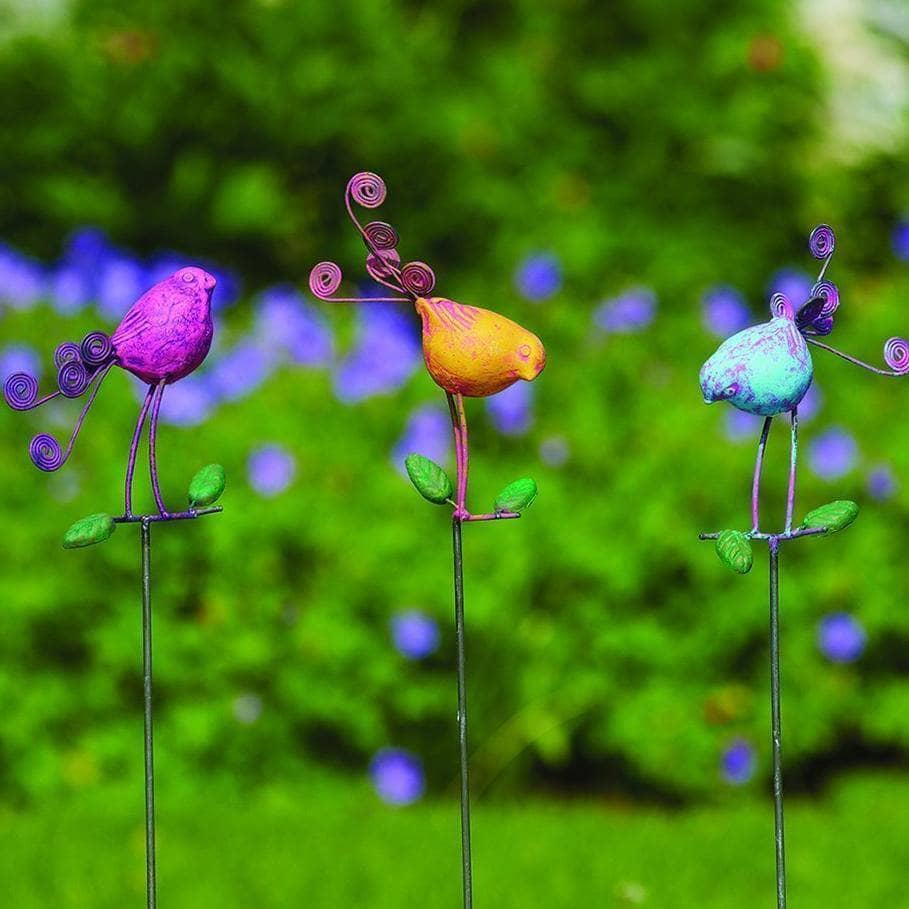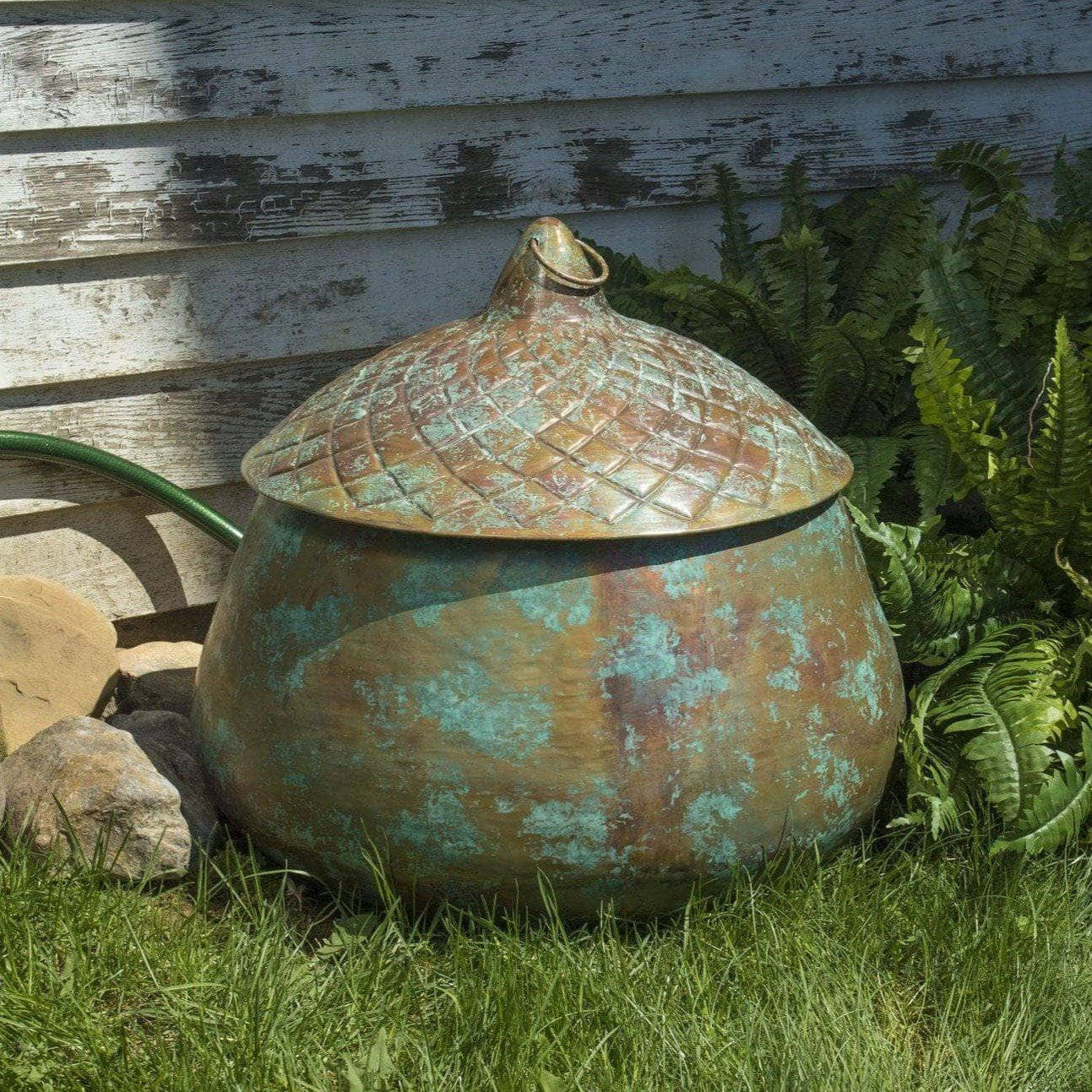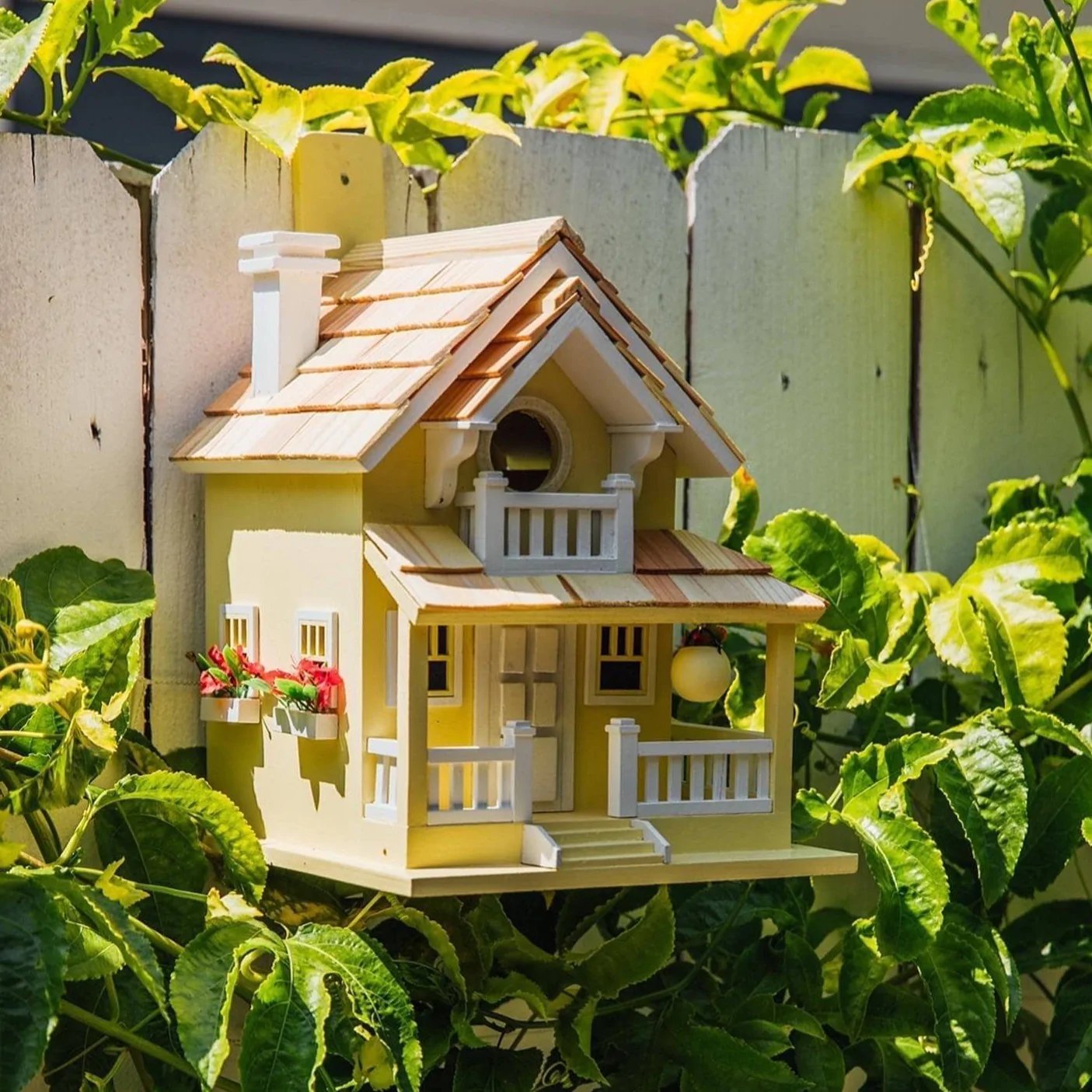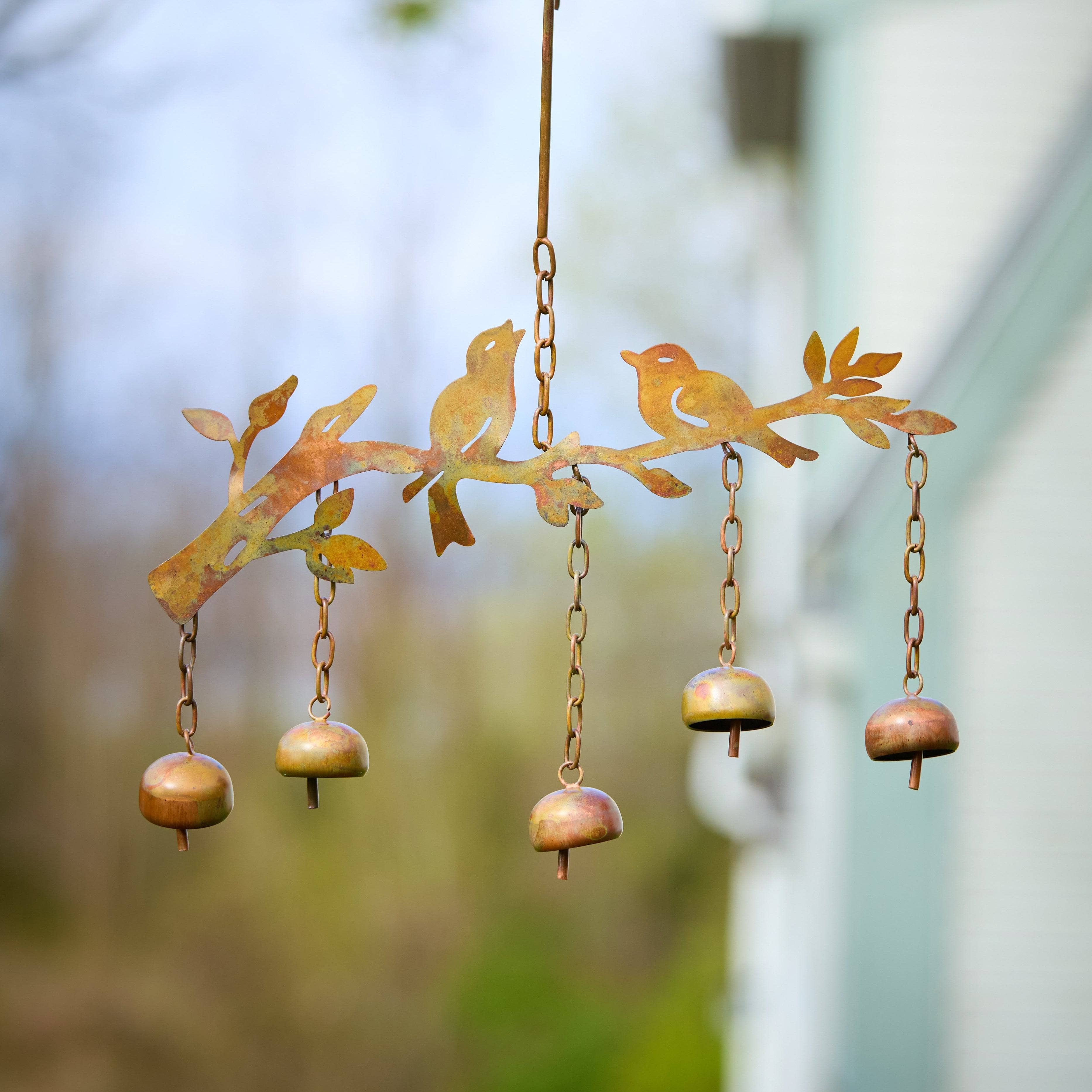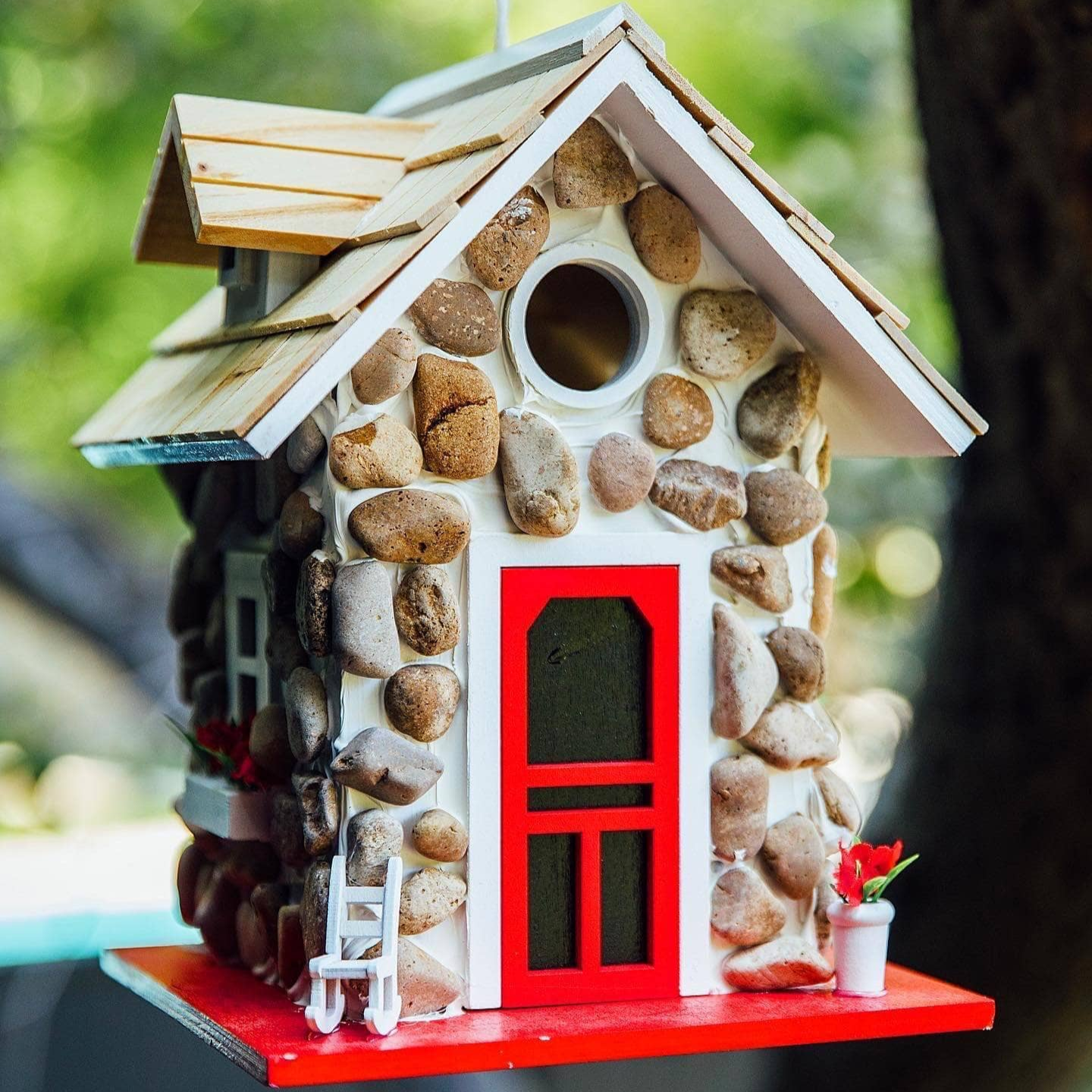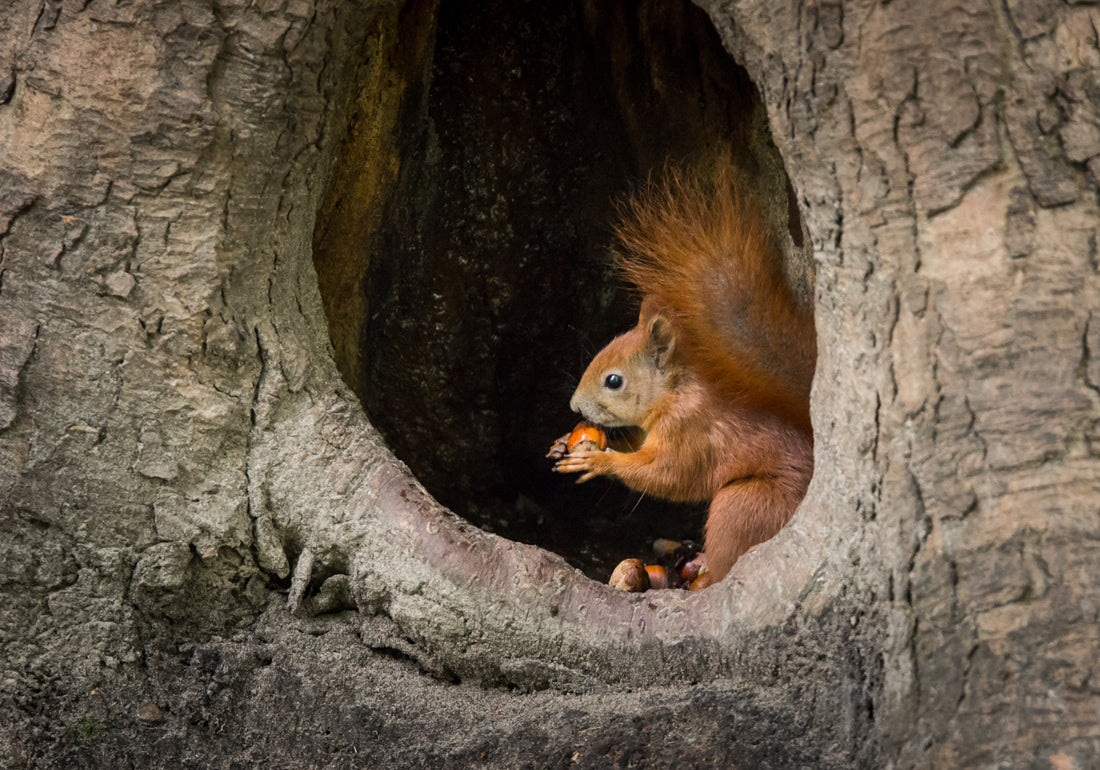
9 Ways How to Keep Squirrels Out of a Garden
Share
Squirrels might be entertaining to watch run around your garden but can instantly become a nuisance once you start to see your vegetables disappearing and your outdoor space a mess. So, what is a gardener to do? Simply choose to co-exist with these furry friends?
Thankfully, no! There are a handful of different approaches to keeping these critters out of your garden. Keep reading to learn all about squirrels, including 9 ways to keep squirrels out of a garden.
Why Are Squirrels Bad for Your Garden?
Across the entire country, squirrels are known as being troublesome critters for gardeners. And here's why...
Squirrels are Natural Foragers

Squirrels like all sorts of things growing in gardens, including flowers, vegetables, and fresh fruits. They have known to be so persistent that they will even strip apple trees of fruit, pluck tomatoes from their vines, and even yank out geraniums from window boxes.
Squirrels Stock Up For Winter
Although squirrels can be disruptive to gardens all year round, their peak season tends to be late summer and early autumn. It's during this time that gardeners can become especially impatient with these critters. What might be occasional thieving quickly turns into foraging as squirrels begin stocking up for the winter ahead of them.
Squirrels lay low in the winter months but do not fully hibernate. As such, these stores of food in their underground pantries become a crucial element in their winter survival.
Squirrels are Pesky Ransackers
Gray squirrels, in particular, are known to have hoarding instincts to help them survive. They ransack their surroundings and stash it throughout their territory for safekeeping to return to later on.
These squirrels gather all sorts of common things found in your garden, including insects, fungi, berries, fruit, bark, nuts, pinecones, acorns, and sunflower seeds. You can't put it past these squirrels to even steal some flower bulbs or bird eggs as well.
Worst of all, squirrels don't just dig up your garden for the sake of survival. Sometimes, these critters will ruin your flowerbeds for the sake of their own entertainment.
Squirrels Migrate Indoors
Not only do you have to worry about the plants in your yard, but if you have squirrels in the area, you'll also need to be mindful of their need to seek shelter in the colder months. During autumn, as squirrels being getting ready to calm down for winter, they may seek out warmer places. If you have squirrels in your yard, it is only natural to assume they might pursue your home to make it through the cold of winter.
You can help discourage squirrels from seeking salvage in y our home by making sure any branches that fall near your roof are always trimmed. You'll also want to make sure that you have a mesh guard across your chimney to avoid any sneaky critters making their way into your home from that exterior access point. Just like with any rodents, be sure to seal up any other entry points around your home.
If a squirrel finds its way down your chimney or into your attic, you want to make sure it has a way to get out. You do not want the squirrel to die inside your home for obvious reasons. If you think the squirrel might be stuck, it is in your best interest to provide it with an escape route, which might entail hanging a rope down your chimney.
When all else fails, you can always call your local animal control to help you with your squirrel problem. If a squirrel lives in your home for a couple of weeks, you'll quickly find that you don't just have a problem with one squirrel, but its entire family. Dealing with a larger squirrel infestation can be very difficult and costly as well.
Signs of Squirrels in Your Garden

You might recently have noticed some new activity in your garden that you can't quite identify. If you think you might have squirrels visiting throughout the day, here are a few signs.
Partially Eaten Flowers
It's not just seeds, fruits, and veggies squirrels are after in your garden. They are also fond of flowers and other plants. Daisies tend to be a popular favorite amongst the squirrel population, but it's not uncommon to find other flowers partially eaten throughout your garden if you're dealing with a squirrel. If you're noticing blooms with half of the petals and most of the center missing, a squirrel is most likely to blame.
Container Digging
If you start noticing that your pots of flowers, herbs, or vegetables are consistently being dug into, it's more than likely you've got a squirrel. In attempts to hide their goods, squirrels will bury things throughout your garden space. Sometimes, they will even completely uproot young vegetable pots to find a safe place for their food storage.
Nibbled Seedheads
Flattened and ripened seed heads are a squirrel treat. Often, you'll see that squirrels will nibble from the outside in. This is especially true in sunflowers.
Missing Plants
It's not uncommon to find the remnants of little seedlings sprawled across your soil. In some circumstances, squirrels might even take your freshly planted bulbs or tree buds. The same goes for the leaves of your precious perennials.
Bite Marks
Noticing missing fruits and veggies is a tell-tale sale that you have a squirrel reaping the benefits of your hard work in the garden, but they won't always take the entire thing. Sometimes, you'll find one bite mark in fruits or vegetables in your garden beds that have been left behind. Some popular garden treats for squirrels include tomatoes, eggplants, cucumbers, squash, and beans.
Shallow Digging
If you see golf-ball-sized or smaller holes in your planting beds, it's more than likely you have squirrels digging around in your garden. Freshly planted seedbeds attract squirrels even more because they love to dig up the seeds for food. If you see something other than your own planting hole, it's likely from a squirrel.
Identifying Squirrels
If you've seen the signs in your yard, you'll likely start keeping a closer eye to see what critters are responsible. In doing so, you'll want to ensure you know how to identify a squirrel from other small rodents.
The most common squirrel found in yards across the country is the common gray squirrel. Despite the name, the squirrel's color ranges from gray, light brown, tan, dark brown, and even black. Typically, the underside of the squirrel is a lighter color.
The common gray squirrel's body is typically 8 to 11 inches long, with a long puffy tail measuring an additional 8 to 10 inches. These animals can weigh anywhere from 16 to 24 ounces.
9 Ways to Keep Squirrels Out

Now that you've got a better idea of how to identify these pesky critters, it's time to tackle keeping squirrels out of your garden.
1. Removing Things
One of the first steps to keeping squirrels out of your garden will be to remove the things in it that are attracting them in the first place. A combination of both sight and smell will attract squirrels to your garden, including seeds, fallen nuts and fruit, and bulb debris. Clean up these items as quickly as possible, including keeping your birdfeeders as tidy as possible.
Other things like trash cans which will hold all the items you are cleaning from your yard, should always have lids that fit securely. The last thing you want is to have to chase squirrels out of your trash areas.
2. Repelling Them
There are a handful of tricks and homemade recipes you can create to repel squirrels from your garden. Many recipes call for ingredients such as hot peppers (such as cayenne pepper or chili peppers), apple cider vinegar, peppermint oil, coffee grounds, or some combination of them all.
If you're opting for this method for keeping squirrels from your yard, make sure you are always reapplying after rainfall. Also, be careful not to spray any plants you intend to eat yourself. The cayenne pepper or apple cider vinegar can make for an unpleasant surprise.
3. Distracting Them with Sunflower Seeds
Another method to deter squirrels from your precious garden is to distract them with decoy food stations. Set up an array of things squirrels eat regularly in isolated areas far from any of your planting beds. Some favorite treats may include feed corn, safflower seeds, peanuts, or basic bird seed.
Some gardeners will go so far as to set up a small vegetable garden with extra tomatoes close to this area just for food supply for the squirrels. Either way, you'll want to include a source of water in this area as well, so they don't have to travel across your garden to find one of their own. Be mindful that this may also attract other critters, so be sure to weigh your options carefully.
4. Scaring Them
Having a pet not only adds entertainment for you but can also help to discourage squirrels from making a home out of your yard. If you don't have a dog, it might be time to reconsider the option. Most dogs and cats have curiosity in the little critters alone will likely be enough to scare them away and prevent any squirrel damage.
If you don't have a pet, you can consider purchasing predator urine (such as a tiger or wolf) to spread in your garden soil. While it might seem strange to buy predator pee, it can prove to help significantly with your squirrel problem. The smell from larger natural predators is enough to scare all kinds of smaller animals, including deer, rabbits, squirrels, and other rodents.
Other scare tactics to help keep your plant bulbs safe would be to install motion-activated sprinklers, hanging old CDs, or placing pinwheels to help discourage digging.
5. Excluding Them with Chicken Wire
To keep squirrels out of particular plant beds, you can always try installing a cage or cover. There are a few different exclusion options, including summer weight row covers, chicken wire, plastic netting, or hardware cloth.
You can even go as far as to guard individual plants by creating cages out of chicken wire (or other wire mesh) and topping them with plastic bird netting.
6. Protecting Your Garden
Wrapping individual vegetables and fruits can also help to protect your harvest. Items from your garden, especially eggplants and tomatoes, can be protected with small pieces of bird netting place around the mature fruits. You don't have to bother with the green, unripe fruits and vegetables, as squirrels tend to leave these alone.
7. Covering Soil
If you're interested in keeping squirrels from digging in seedbeds, you can cover your soil with mulch. This tactic also helps with freshly planted seedlings and planting bulbs to help give them a better chance at survival.
8. Making Your Garden Less Appealing
Other deterrents will include researching what different natural predators are in your area and find what you can do to attract them to your yard. Many gardeners use aluminum foil to attract larger birds, such as owls or hawks, to their yards. Having predators will naturally deter squirrels from getting too comfortable in your garden.
Oh, and one last note. We never recommend trapping squirrels or otherwise putting them in harm's way.
9. Keeping Them Off Your Bird Feeder
The favorite food of squirrels also happens to be what birds love to eat as well. As such, it can be difficult to keep squirrels away from your bird feeders. You'd be surprised by the different acrobatic maneuvers these little critters can pull off, all in the name of accessing your bird feeder. For tips on keeping your squirrels out of your bird feeder, check out this article.
Finding Beautiful Bird Feeders From the Happy Gardens Store
Beautiful bird feeders and other crafty pieces for your garden can be found here at the Happy Gardens store! Every garden (even those undergoing a bit of a squirrel infestation) deserve some tasteful decor, which is why you should take a moment to browse through our hand-picked selection.
About Happy Gardens
The Happy Gardens online collection is a great place to check out if you're searching for thoughtfully designed garden decor and merchandise for your garden. Whether you've been endlessly searching for a charming rain chain, beautifully crafted wall art, or ornate bird feeders, you'll find exactly what you're looking for and then some here. Best of all, each product within our online collection has been individually handcrafted and chosen with love for your happiness.
Here at the Happy Gardens store, you can always find an expansive assortment of unique collections. All of our items are beloved and top-rated garden products. Some of our favorite pieces include our artistic rain gauges, unique spinners, eye-catching garden statues, and ornaments perfect for decorating any outdoor space. In addition to our online garden collections, you can also check out our brand new line of merchandise. Find exciting gifts available all year round for the fellow garden enthusiast in your life. Peruse our collection of coffee mugs, tote bags, and wine glasses, perfect for any occasion.
There are always new things popping up at Happy Gardens. You can stay up to date on the latest and greatest by joining our mailing list. Simply enter your name and email address and look forward to adding some excitement, and countless garden tips and tricks, to your newsfeed. If you can't seem to get enough garden inspiration, you can give us a follow on Instagram, Facebook, and Pinterest.
If you're looking for some guidance and aren't quite where to start, our garden specialists are always available to you via chat. Remember, here at Happy Gardens, we're happy to help!
